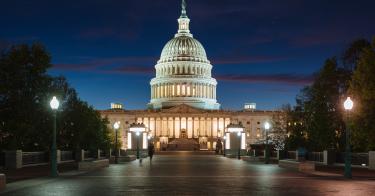It is by the forced goodwill of electricity customers in Georgia that federal taxpayers aren’t yet paying for another Solyndra — of nuclear proportions.
For those who’ve forgotten the Solyndra fiasco, let me refresh your memories. Solyndra was a solar-panel maker in California. The U.S. Department of Energy gave the company $535 million in loan guarantees as part of the Obama administration’s stimulus package.
It was a gamble that didn’t pay off. Solyndra went belly up in 2011, and taxpayers were out the $535 million.
But that’s chicken feed compared with the wager Washington is placing on the Vogtle nuclear power station in Georgia. Under the same loan guarantee program that brought us Solyndra, the Energy Department has committed $8.3 billion for the construction of the only two nuclear reactors being built in the U.S. today.
Originally estimated to cost $14.3 billion, the 2,200-megawatt project was supposed to come online this year. Now it’s expected to cost over $28 billion, and construction delays have pushed back the estimated completion date to 2022.
But late last month, Vogtle’s co-owners fell out over yet another multibillion-dollar cost overrun. Oglethorp Power Corp. argued that it could no longer pass costs on to its customers who, under Georgia’s regulated monopoly electricity sector, cannot switch providers. Several tense days later, the co-owners agreed to continue construction, further committing their customers to picking up the overrun.
Had they not, it’s unclear what would have happened. One distinct possibility is that the project would have been dropped, leaving the Trump administration with its own Solyndra scenario to explain to federal taxpayers.
It could be easy to hate on companies like Solyndra and the consortium behind Vogtle, but that would be missing the point. These companies were only taking advantage of government funding that their competitors would take if they didn’t.
Don’t hate the players, hate the game. Congresses and administrations have opted to offer subsidies of all varieties rather than trying to fix the unnecessary regulatory burdens and government-induced uncertainties that the nuclear industry faces.
But it turns out politicians aren’t even very good at figuring out how to dish out other people’s money (i.e. taxpayer dollars), except perhaps when the government is the customer — for example, investing in technology to meet a specific battlefield capability.
Energy markets are incredibly dynamic and full of curveballs that defy political agendas. In just this past decade, the energy markets have been roiled by major, unexpected developments such as the global financial crisis, plateaued electricity demand, a tsunami-generated nuclear power plant accident in Japan, and a technology-driven plunge in oil and gas prices.
Subsidies “corrupt the data” for rational decision-making in these circumstances by masking actual costs and risks, or encouraging decisions that common sense might otherwise dissuade market participants from making.
Both political parties play this risky game. For example, the loan guarantee program used by Solyndra and Vogtle was created during the Bush administration under the bipartisan Energy Policy Act of 2005. The Vogtle loan guarantees were initiated and finalized under the Obama administration.
The Trump administration has conditionally offered another $3.7 billion in guarantees to Vogtle. When it became clear that the Vogtle plants would not meet a statutory deadline, the Republican-held Congress further committed federal taxpayers to the Vogtle project by extending the expiration of production tax credits for new nuclear reactors.
Nuclear energy is too important and offers too many unique benefits to leave it to the subsidy game. Politicians have a duty to steward taxpayers’ dollars wisely — not to gamble them away.
Lawmakers do need to address regulatory issues that unnecessarily constrict and distort energy markets, but they must then step aside and let the wisdom and innovation of investors and consumers make the energy decisions that are best for them.
This piece originally appeared in the Washington Times



